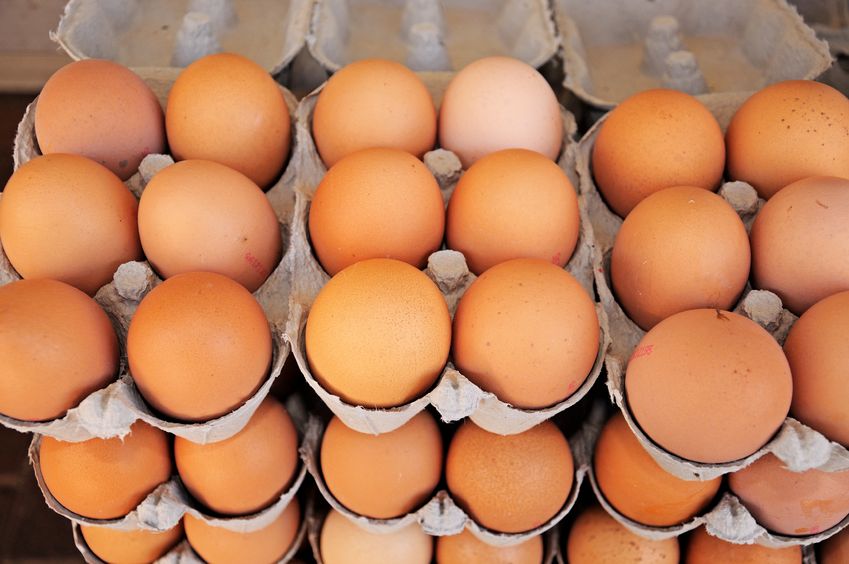
Egg producers have raised concerns about the Trans-Pacific Partnership (TPP), a planned trade deal between 11 countries and one the UK may seek to join following its withdrawal from the EU.
Original negotiations to create the trade group were rocked when the United States pulled out in the wake of Donald Trump's election as president.
But the proposed deal was subsequently revived as the Comprehensive and Progressive Agreement for Trans-Pacific Partnership.
And agreement has now been reached between Australia, Brunei, Canada, Chile, Japan, Malaysia, Mexico, New Zealand, Peru, Singapore and Vietnam.
It is claimed that the trade pact could raise the value of the countries' exports by four per cent, or $23 billion, by 2030.
However, Canadian egg farmers have expressed disappointment with the deal, claiming that the agreement fails to protect their industry. A leading free range egg producer in Australia has also raised concern about the impact of the agreement.
But Liam Fox’s Department for International Trade is reported to be developing proposals for the United Kingdom to join TPP following Brexit.
'Low standard'
Farmers' leaders in the UK have already expressed their fears about possibility of the UK market being opened up to low quality, low standard food imports in any post-Brexit trade deals negotiated by the UK Government.
Egg industry leaders have warned that UK producers would be unable to compete with imported egg products produced to lower quality and lower animal welfare standards.
This same concern has been raised by Egg Farmers of Canada. It has responded to the TPP agreement by saying that the Canadian Government had failed to protect the future of Canada's egg farms.
The organisation issued a statement saying that TPP represented a "hit on Canadian consumers, who want and expect fresh, local, high quality eggs."
Roger Pelissero, chairman of Egg Farmers of Canada, said: "The outcome of the CPTPP agreement means difficult challenges for Canada's egg farmers, their communities and many farms and businesses they support.
"Once fully implemented, Canadian egg farmers will have lost the right to produce close to 291 million dozen eggs, with an additional 19 million dozen eggs added each year after the implementation phase. The total value of the trade deal represents close to one billion dollars in lost farm family income.
"Our farmers make a sizeable contribution to Canada's food system, help keep rural communities vibrant and feed urban consumers' appetite for locally produced food. The concessions under the CPTPP impact the livelihood of Canada's more than 1,000 egg farm families," said Roger Pelissero.
Local eggs
He said he recognised the opportunity the agreement brought to Canada and the overall economy, but there was little incentive for Canada to give away the market access concessions that were originally agreed to in October 2015 when the United States was still a part of the deal.
He said Canadians overwhelmingly preferred Canadian eggs, with nearly nine in 10 agreeing or somewhat agreeing it was important that the eggs they purchased were produced in Canada.
But an increase in additional required imports meant Canadians would be purchasing more imported eggs and egg products, which they normally counted on as being fresh and local.
Egg Farmers of Canada has urged its government to expedite work on mitigation measures. It said in a statement: "We must work side by side to address the impact this will have on our farmers, on our consumers and our ability to produce and deliver the Canadian products they expect, need and enjoy."
'Negative results'
Phil Westwood, an Australian egg producer and former president of the Free Range Egg and Poultry Association of Australia, has also raised concerns about the deal.
Australia's Minister for Trade, Steve Ciobo, has said that the agreement would boost exports and "ensure that we continue to drive economic growth”, but Phil Westwood is worried about possible imports to Australia.
"The revised Trans-Pacific Partnership trade deal, which Trade Minister Steve Ciobo says is great, may have negative results for Australian farmers," he said.
"The deal could see the importation of a wide range of farm products - including eggs." He said that, whilst Canadian farmers were warning about the possibility of huge losses, Australian egg farmers could be hit just as hard.
Speculation has been growing that the UK could seek to join the TPP after the country leaves the European Union. Trade Minister Greg Hands told the Financial Times that there was no geographical restriction on Britain joining trade groups. “Nothing is excluded in all of this,” he said.
“With these kind of plurilateral relationships, there doesn’t have to be any geographical restriction.”
A Department for International Trade spokeswoman was quoted as saying: “We have set up 14 trade working groups across 21 countries to explore the best ways of progressing our trade and investment relationships across the world.
“It is early days but, as our trade policy minister has pointed out, we are not excluding future talks on plurilateral relationships.”
'Very damaging'
Mark Williams, chief executive of the British Egg Industry Council (BEIC) has warned that allowing free imports of egg product into the UK could be "very damaging" for the domestic egg industry.
At the Egg and Poultry Industry Conference in November he said that 16 per cent of the cost of producing a dozen or a kilo of eggs in the European Union came from EU legislation on food safety, animal welfare and environmental protection. Other countries did not have that same cost.
He said the Government needed to tell farmers whether or not they intended to pursue a cheap food policy after the UK left the European Union.
"Clearly food prices are rising. If Government is prepared to allow in agricultural products produced to lower standards to try to keep a lid on food price inflation we need to know about that sooner rather than later. Then you can plan for that. In my book, it's morally wrong."
